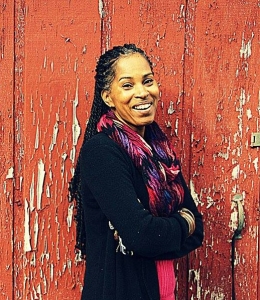This week on Decatur Writers:
Constance Nicole presents the thought provoking poem Soul Mate
and KT Ashely offers the dystopian short story Water Rights—but how fictitious is it, actually?
Soul Mate
by Constance Nicole ©
Soul Mate
Wonder if
You exist
Souls
Tender
Pure and
True
Essence of me
Connected to
You
Knowing lies
Beyond time
Needing
Without reason
With no rhyme
My heart holds you
In warm embrace
Your tears
Bleed down
The planes
Of my face
Lusts desires
Fantasy
Projections
Reflecting
Of ecstasy
Been here before
Done much
Much more
Been remiss
Misused, abused
The gift
Given freely
For selfish
Remedies
Pleasures
Certainly pain
Sought in vain
Flawed
Seeking
Ever reaching
HE is love
Made us to
Love
You
Me
GOD
Completion
Repletion
Souls
Enmeshed
Beyond
Mere flesh
What should
Would could
Love really be
If HE
Were here
With us
Would we understand?
Could you touch me with
No hands?
Hold me
Minus arms
Could you feel me
Absent touch
Hear me with
No words
Kiss me
Into fire
Laugh and sing
My songs
Infinite desire
What if GOD
Were here with
Us
What if HE
Said it pleased HIM
Let us see
What
Could should
Would
We be
If we
Were free?
Souls meeting
Souls mating
Ever
Waiting
Could you hold me with more than just your arms?
Genre: Poetry, Fiction and whatever else comes to mind
After 23 years in public sector Human Resources, Connie found herself seeking a freelance writing career. She was born in New Jersey. Residing in Georgia for the past 30 years, she is surrounded by both natural and spiritual children who include two grandchildren and a host of other family members–adopted and otherwise. She credits God for her love of people. While poetry is her first love, she has written online news content and lots of short stories. Connie has also embraced entrepreneurship by supporting other women business owners as the founder and CEO of My Girlfriendz Place.
Website: www.mygirlfriendzplace.com
Though this fictional story is based on science fact, it may be disturbing to readers.
By KT Ashely ©
It tasted like dirt. Everything did. But the worst part was that it was the air. The air tasted like dried-up dirt. Too bad we can’t drink it, Felicia thought. We might be able to survive another winter season if we could.
The clouds on the horizon were dark and purple. Incoming wind smelled sweet like ozone. It blended with foul, stale air. Another storm was forming. It brought promise of the rains. The red, cracked earth begged for such a nutrient. But it was unlikely to fall here. The drought in this part of central Tennessee had persisted for almost eleven years. Felicia remembered her grandparents saying that starting in the 30’s, the drought had lasted for almost twice that long.
It was now the 70’s. Her grandchildren had never known life above ground. The storms had gotten so bad in the late 20’s that PermaCorp-Gov had begun to build underground dwellings on a massive scale. The quasi-governmental organization was formed for “national security reasons”, citizens were told. Tornadoes had devastated much of the Midwestern United States by then. Massive hurricanes on the Gulf and East Coasts added to the misery. The nation’s great interior migration, forty years before, only added to the depletion of resources.
New York City, New Orleans and San Francisco had disappeared by 2040. The collapse of the Antarctic ice sheets had contributed to the cities demise many years before. They were completely abandoned. Some say that over one hundred years ago, a former American president called Carter gave warnings about the need for natural resource conservation. He was echoed by historical figures named Gore and Obama. In her old age, Felicia now wished that the people existing then would have put more faith in their fellow man. Instead, they blindly followed politicians, employing corporations, and even their savior religions.
The air was much fresher above ground. The close, dirty living quarters below were unbearable. Body heat amplified the conditions of overcrowding. Functioning, underground sewers had long been replaced by slop buckets that were emptied topside into open pits nearby. Outside, open defecation was common. It had further contaminated the top soil—a pollution problem of many countries once called “third world” in the twentieth century. Only the affluent had compost toilets. Flush commodes were extinct.
Even without the drought, growing crops topside would be difficult in the toxic soil. Much of the plant based diet was grown underground hydroponically, and aided by solar electricity. It still was not enough to feed everyone. The poorer servant communities suffered. Dysentery and cholera were rampant there.
Felicia’s drab head cover was dusty and flapped in the hot breeze. The ailing woman sat on thick concrete. The outcrop was near an exposed portion of the development’s water-pipe corridor. Its protective bunker was massive.
She could hear the rush of desalinated water being channeled to the larger city core by the massive pumps below. Felicia wondered if her community would receive their ration this week. They had been shorted in the past few deliveries. Violence had increased among the residents who lived beneath the earth. Everyone fought for the limited resource as it was inefficiently distributed. Riot officers from the Water Resources Unit often stood back in fear for their own lives.
The PermaCorp-Gov elite citizens were scheduled to receive their rations first. Although everyone in the world was in the same global predicament, it always seemed the more affluent residents were the first to be served. Historically, nothing had changed in this once great and respected, democratic country.
An immense, worldwide migration had started in 2031. Resources were limited; borders were overrun. Those with money and influence began to bunker down and form militarized, gated communities. These “communities” later became small, guarded, subterranean cites–especially after the country once known as North Korea blew itself up. They had launched a nuclear attack with ICBM missiles at Japan. The guidance software proved to be defective.
Many Western world leaders suspected that the Chinese had sabotaged the North Korean’s launch programming. Others believed that theory to be untrue. Regardless, the residual radiation poisoned much of the East. It was turned it into a wasteland where an already water stressed region existed. After the United States abandoned Northern Africa and the Middle East, those countries also completely disintegrated from political turmoil and decades of war.
Global warming had already decimated countries known as India, Bangladesh and Pakistan during those pivotal, early years. Now forty years later, Felicia knew little of the history of her planet. Pollution, corporate greed and mismanagement of natural resources had caused the collapse of over half of the earth’s nations and her indigenous population.
Large drops of sporadic rain fell on the ground before her. It looked as if puffs of smoke had wisp from the hell below. Felicia gazed to the north. Golden, stunted, ripples of speargrass waved back at her. The storms were building. Any amount of rain would be insignificant in refilling the long, depleted acquirers. Most everyone returned to the safety of the underground, but she remained.
The hail started to fall. The woman now in her early fifties heard the great steel doors close. She had ignored the warnings to come back in. Instead she stood up from her resting place and methodically walked northward.
Large ice pellets pelted her back and head. Felicia picked up a dirty, red, ice stone from the arenaceous earth and put it into her mouth. The melting water tasted like the acidic sea, but it was cool and it refreshed her dry mouth despite the smell of reconstituted feces.
She mindfully savored the treat until a mass the size of a baseball knocked her into unconsciousness. Her body fell to the moistened clay. Felicia’s goal to experience this blissful moment before she left this wretch of an existence was reached.
Hail continued to strike at her where she lay. The clouds gathered ever menacingly above. No one came to her aid. They had seen this act many times before. Chances were that she would not even be there once the doors had reopened. They were right. Her lifeless body was lifted up unceremoniously by the massive, cyclonic winds and carried far away from the dystopian community.
________
Water Rights is partially inspired by the following:
HBO series Vice episodes:
#12 Greenland is Melting, #23 Our Rising Oceans, and #31 India’s Water Crisis
Available on HBOGO http://www.hbo.com/vice#/
NASA
Why Does the Greenland Ice Sheet Matter?
http://earthobservatory.nasa.gov/Features/Greenland/greenland_sidebar.php
National Resources Defense Council
The Consequences of Global Warming On Glaciers and Sea Levels
http://www.nrdc.org/globalwarming/fcons/fcons4.asp
PermaCorp-Gov is a fictional corporation invented by the author. Any resemblance to any business or any nation’s government program whether past, present or future, is pure coincidence and does not suggest affiliation with any said entity.
Genre: Historical and Realistic Fiction
Author KT Ashely is an American writer from the South. A native of Louisiana, he also lived and worked in Texas and Northern New England for many years. Much of his writing is influenced by historical events from contemporary to ancient. The human condition and it’s affects on society are often recurring themes. KT is a U.S. Navy Submarine Cold War Veteran.
Current book: The Pool, a novella available on Amazon and Kindle

Website: authorktashely.com
Contact: kt@authorktashely.com
Twitter: @authorktashely
Facebook: authorktashely


